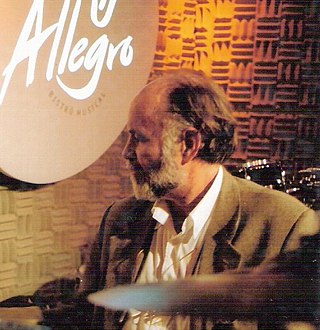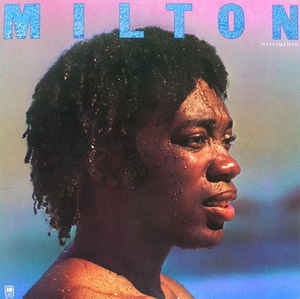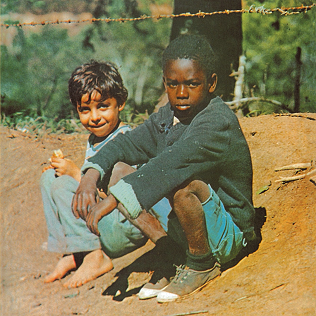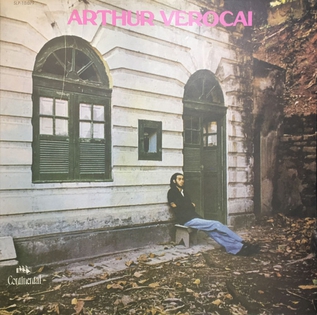Clube da Esquina was a Brazilian music artists collective, originating in the Brazilian state of Minas Gerais. It is also the name of a double album from 1972. Clube da Esquina mixes rock and roll, progressive rock, bossa nova and jazz styles, with Brazilian folk music and classical music influences. The Beatles and the Platters were also an important influence on Clube da Esquina.

Antônio Maurício Horta de Melo is a Brazilian jazz guitarist and vocalist.

Juvenal de Holanda Vasconcelos, known as Naná Vasconcelos, was a Brazilian percussionist, vocalist and berimbau player, notable for his work as a solo artist on over two dozen albums, and as a backing musician with Pat Metheny, Don Cherry, Jan Garbarek, Egberto Gismonti, Gato Barbieri, and Milton Nascimento.

Robertinho Silva is a Brazilian drummer known for jazz. His first album was Música Popular Brasileira in 1981.

Elis is an album by Brazilian singer Elis Regina released in 1972, contains some successes as "Bala com Bala", "Nada Será como Antes", "Casa no Campo" and "Atrás da Porta".

Chico Buarque, occasionally referred to as Samambaia, is a 1978 album recorded by the Brazilian singer and composer Chico Buarque. The album includes hits such as "Cálice", "Pedaço de mim" and "Apesar de você", and features participations by several outstanding Brazilian artists, e.g. Milton Nascimento, Elba Ramalho, Marieta Severo and Zizi Possi.

I Love Brazil! is a 1977 studio album by Sarah Vaughan, accompanied by prominent Brazilian musicians Milton Nascimento, Dori Caymmi, and Antônio Carlos Jobim.

Nascimento is an album by Brazilian musician Milton Nascimento, released through Warner Bros. Records in 1997. In 1998, the album earned Milton Nascimento the Grammy Award for Best World Music Album.
Casos e Acasos is a series of Brazilian TV Globo Network, written by Daniel Adjafre and Marcius Melhem, the general direction of Carlos Milan core of Marcos Schechtman and Jayme Monjardim. First aired as a special year-end on December 26, 2007, the program went live April 3, 2008 and no longer appears in the following year.

Mário Negrão Borgonovi is a Brazilian composer, drummer and percussionist.
Por Toda Minha Vida is a Brazilian television series produced and broadcast by Rede Globo. His first episode aired on December 28, 2006. It is the Brazilian television series with the most nominations to the Emmy Award.

Milton is a 1977 album by Milton Nascimento.

A Brazilian Love Affair is the fourteenth studio album by American keyboardist and record producer George Duke. It was released in 1980 through Epic Records. Recording sessions for the album took place from March 1979 to April 1979 at Level E Hawai Recording Studio in Rio de Janeiro and at Westlake Recording Studios with additional recording at Le Gonks West Studio in West Hollywood, California. It was mastered by Brian Gardner at Allen Zentz Recording Studio in Los Angeles.

Clube da Esquina is a double studio album produced by the gathering of Brazilian musicians by the homonymous musical movement, led by singers and composers Milton Nascimento and Lô Borges, to whom the album is credited. In this way, it became Milton Nascimento's fifth studio album and the first by Lô Borges, who would later pursue a solo career with his own works. Conceived at a time of political tension in dictatorial Brazil, it has attracted attention for its committed compositions and miscellany of sounds. The album was released in Brazil in 1972 on double LP by EMI-Odeon and remastered in 1994 on CD by EMI Hemisphere.

Arthur Verocai is the debut studio album by Brazilian composer Arthur Verocai, released by Continental Records in 1972.

A Via-Láctea is the third studio album and second solo album by singer and composer Lô Borges, released in 1979 after a seven-year hiatus.












